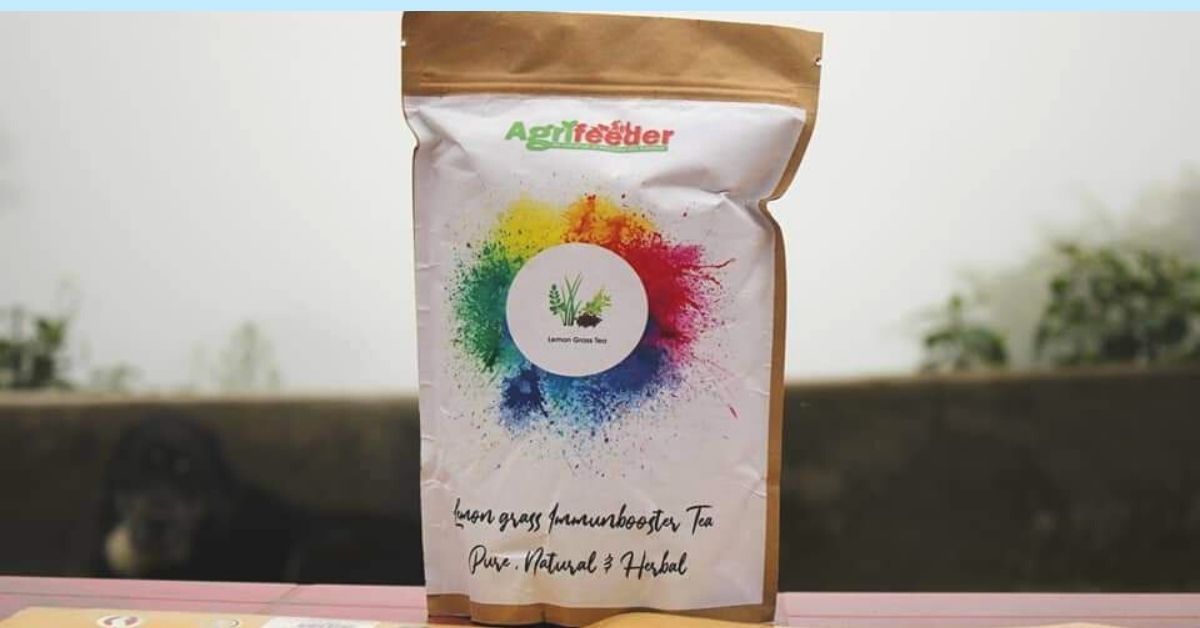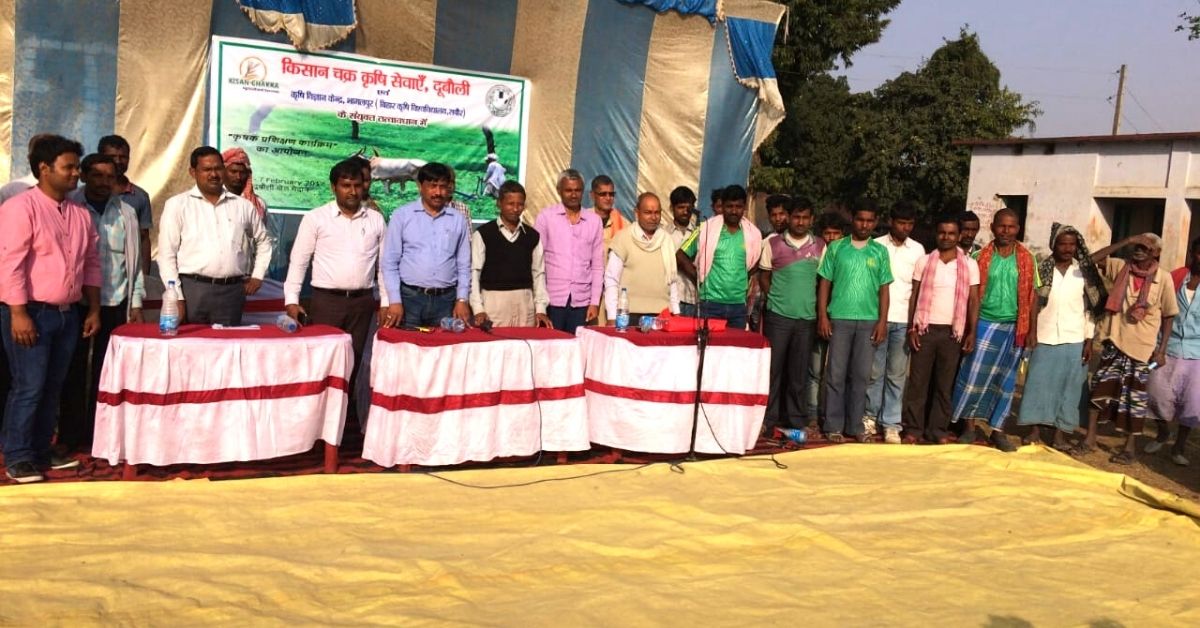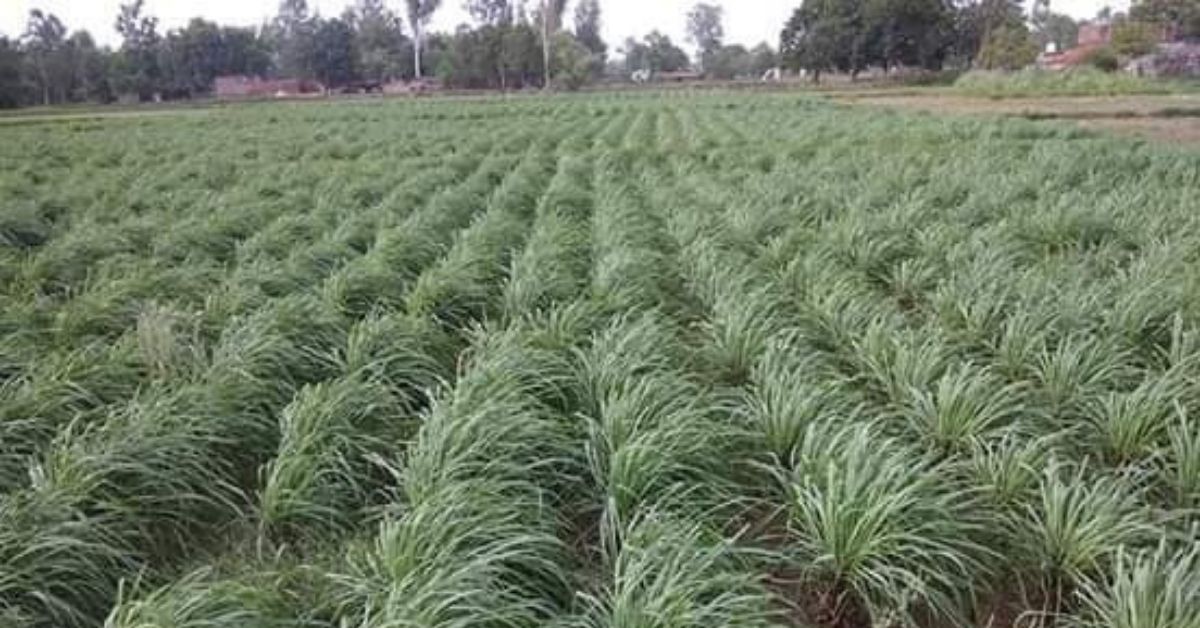Bihar Startup Earns Rs 2.5L in Lockdown, Gives Two-Thirds of Profits to Farmers
Two brothers in Bihar quit their jobs to form Agrifeeder startup. The duo encourages farmers to cultivate medicinal plants to earn more profits by selling spice-mixed herbal tea

Recently, I was exploring a potential story about a startup from Bihar that works to empower farmers through training and providing technical support. Interestingly, during my chat with Raman Kumar, the co-founder of Agrifeeder startup, he casually informed me about some herbal tea he was selling with the farmers, now that lockdown had affected business so much.
A little digging revealed, much to my amazement, that he was handing over two-thirds of the income generated from the tea straight to the farmers.
Citing an example, Raman said, “We charge Rs 120 for a 50 gram of tea packet. But hardly any money remains with us.”
Raman explained that out of the Rs 120, Rs 13 goes into packaging, and there are other packaging and courier charges incurred by the company. “It costs around Rs 80 to pay for the two professionals hired to attend inquiries and package and courier the product via post,” Raman said.
The entrepreneur said that about Rs 30 comes as a profit in the form of earnings for each sale. Rs 20 is paid to the farmer, and Rs 10 is kept to meet the operational costs of the company.
And how much money has the fledgeling startup made during these three months? A whopping Rs 2.5 Lakh!
Here’s how it all happened.
Spices For The Lockdown

Agrifeeder is a three-year-old startup imparts scientific and technical knowledge to farmers. The company also works to help farmers shift from traditional farming to more lucrative options for bettering their lives. The company is run by two brothers – Rounak, an engineer who quit his job in favour of sustainable agriculture and Raman, a management graduate.
The lockdown served an opportunity to help farmers in a new way.
“The farmers here rely entirely on cultivating crops like wheat, cereals and corn. The harvest gets sold at Rs 2,500 a quintal or Rs 14 a kg. But, the market price is Rs 19 a kg, and the wheat atta costs Rs 40 a kg. Though they invest half the investment needed to make the produce, farmers are the smallest beneficiaries,” Raman explained. The whole process – planting to harvest to sale to money appearing in bank accounts – took a long time.
Raman and Rounak needed a way to earn farmers money quickly, for low investment but with a high return during the lockdown.
The two eventually came up with a plan. They advised farmers to grow spices in a small patch of their land, and which the brothers would use to make herbal tea. The spices would grow quickly without much effort or taking up too much space. And the tea could be sold quickly as well.
“We grew lemongrass in our land as a demonstration to the farmers in our area. We prepared a tea formula with the lemongrass and tested the customer response in the village Dubouli in Bhagalpur district of Bihar,” Raman said.
Brewing up a Business with Tea

With a good response from the locals, seven odd farmers agreed to get into the business. “We convinced the farmers to grow Tulsi (holy basil) and lemongrass in a half an acre portion of their farms. The plants require little maintenance, minimum irrigation and there is no need for insecticides or pesticides,” he added.
Rounak Kumar, the elder of the two brothers, said the farmers dry the harvest and then they buy for Rs 100 a kg. “In less than a month, a farmer makes Rs 2,500. This money can be used to meet immediate expenses, sparing the farmer from loans,” he adds.
Raman said that many villagers questioned their intent when they started the initiative. “Farmers thought we had vested interests in suggesting medicinal plants. They also thought that we were acting too smart with no knowledge in agriculture,” he said adding, “But with the recent success, many farmers have started believing in us and are curious to know about our activities.”
Munmum Tiwari, a farmer in the village said, “There was no concept of growing lemongrass in the area. I tried it in one acre of land along with a few others.”
Munmun said he spent Rs 60,000 to cultivate the lemongrass over two months. “I earned a profit of Rs 30,000 leaving out the expenses. So more farmers are feeling motivated by this,” he adds. About 30 more farmers have agreed to grow spices with the Agrifeeder company now.

In the past three months, the company has sold over 4,000 tea boxes of different sizes across India and the USA, earning Rs 2.5 lakh in that time. Agrifeeder sold 200 packets in July, followed by 1,700 in August and over 3,000 in September.
Rounak said the tea gets infused with black pepper, ginger, moringa leaves and cinnamon. “We are selling it in two flavours – ginger and cardamom. The two spices differ while the remaining ingredients are common in both the teas,” he adds.
“The lemongrass is good for skin ailments, moringa helps balance blood pressure, cinnamon and black pepper help joint pains and increase metabolism while Tulsi is known as an immunity booster,” Rounak said.
“The blend is much milder than the others in the market – making it safer and it goes easy on people with a weak stomach,” he adds.
“We are also in the process of collaborating with supermarkets to get some space on their shelves,” Rounak said, elaborating on future plans. Raman added that once they had the confidence of more farmers, they plan multiple initiatives for their benefit.
Big plans in store

“The farmers in Bihar do not know about corporate farming or growing exotic vegetables like mushrooms, baby corn and others which fetch high values in the market,” Raman says.
“But who eats mushrooms in Bihar? It is the same challenge we experienced to convince the farmers to grow spices. We still outsource black pepper, cinnamon and ginger for the tea,” Raman said.
Raman added the duo wish to give exposure to such vegetables to the farmers. “We plan to grow mushrooms, make dishes and introduce the vegetables to these farmers. There are also plans to have a facility to store grains and vegetables before they get sold in the market,” he said
Raman stressed that they would not charge farmers any fees to use the facility. “We want to create agripreneurs and this ‘Made in Bihar’ tea is the first step towards it,” Raman said.
(Edited by Vinayak Hegde)
If you found our stories insightful, informative, or even just enjoyable, we invite you to consider making a voluntary payment to support the work we do at The Better India. Your contribution helps us continue producing quality content that educates, inspires, and drives positive change.
Choose one of the payment options below for your contribution-
By paying for the stories you value, you directly contribute to sustaining our efforts focused on making a difference in the world. Together, let’s ensure that impactful stories continue to be told and shared, enriching lives and communities alike.
Thank you for your support. Here are some frequently asked questions you might find helpful to know why you are contributing?


This story made me
-
97
-
121
-
89
-
167











